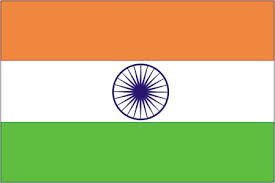Maldives, India sign defence action plan - Maldives Independent, 12 April 2016
The Maldives and India signed Monday a defence action plan and other bilateral agreements for cooperation in the fields of tourism and taxation.
“We are conscious of the security needs of the Maldives; President [Abdulla] Yameen agreed that the Maldives will be sensitive to our strategic and security interests,” Indian Prime Minister Narendra Modi said at a joint press conference after official talks with the visiting Maldives president in New Delhi yesterday.
“It is clear that the contours of India-Maldives relations are defined by our shared strategic, security, economic and developmental goals. The prompt implementation of a concrete action plan in the defence sector will strengthen our defence cooperation.”
Yameen’s two-day official visit to India – which concluded last night – came amidst a lobbying effort by his administration to avoid “punitive action” from the Commonwealth over the widely condemned jailing of opposition leaders.
Indian media coverage of Yameen’s visit meanwhile focused on New Delhi’s concerns over growing Chinese influence in the Maldives, suggesting that the visit marks an attempt to mend strained relations.
In his remarks, Yameen described India as “the most important friend of the Maldives.”
“The Maldives and India share common perspectives on peace, and stability in the South Asia and Indian Ocean region. That is why the Maldives pursues an India First foreign policy. The security of the Maldives is intimately linked with the security of India,” he said.
Yameen said he exchanged views with Modi on “further expanding our ongoing partnership to counter militant radicalism, cross-border terrorism, organised crimes, and other forms of security threats facing our two countries.”
According to the Indian external affairs ministry, the defence action plan “envisages an institutional mechanism at the level of the defence secretaries to further bilateral defence cooperation.”
Modi said the main components of the plan include development of ports, continuous training, capacity building, supply of equipment and maritime surveillance.
“President Yameen and I are aware of the growing dangers of cross-border terrorism and radicalisation in South Asia,” he said.
“Information exchange between security agencies and training and capacity building of Maldives Police and security forces is an important part of our security cooperation.”
Yameen’s administration has faced criticism from the opposition over inaction to stem the flow of Maldivians joining extremist militant groups in Syria and Iraq.
The opposition claims as many as 200 Maldivians have left the country on Jihad, but the government disputes the figure, with various ministers offering estimates ranging from 35 to 100.
Agreements were also signed yesterday for the avoidance of double taxation of income derived from international air transport and for the exchange of information with respect to taxes.
A third agreement related to the orbit frequency coordination of the ‘South Asia Satellite’ proposed at 48 degrees east.
According to the external affairs ministry, the agreement will be used “for the purpose of performing intersystem orbit-frequency coordination for the operation of South Asia Satellite; and fulfilling ITU level regulatory requirements and obtaining international level protection/recognition for the South Asia Satellite.”
Memoranda of Understanding were meanwhile signed for cooperation in tourism and the conservation and restoration of mosques and joint research and exploratory surveys in Maldives.
Official documents were exchanged between Indian Foreign Secretary Dr. SubrahmanyamJaishankar and Maldivian High Commissioner to India Ahmed Mohamed following high-level discussions held at Hyderabad House.
Yameen said yesterday that the official talks focused on reviewing progress on expanding cooperation in key areas such as defence security, trade and economic cooperation, communications, and connectivity, energy, health cooperation, human resource development, consular and community services, culture and terrorism – issues tabled during the meeting of Maldives-India joint commission in October.
The joint commission “remains an important instrument in shaping the future character of our strategic partnership,” he said.


















